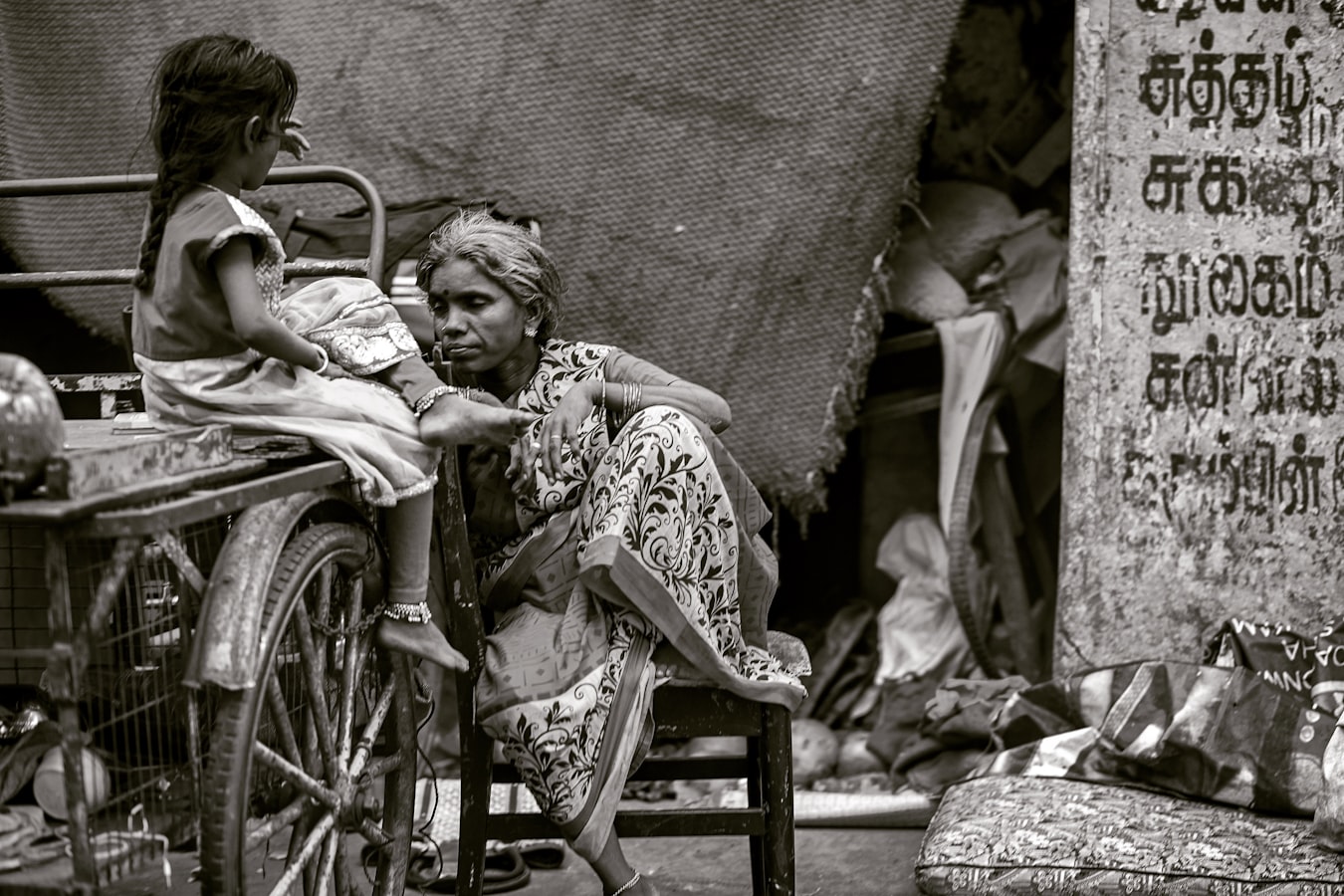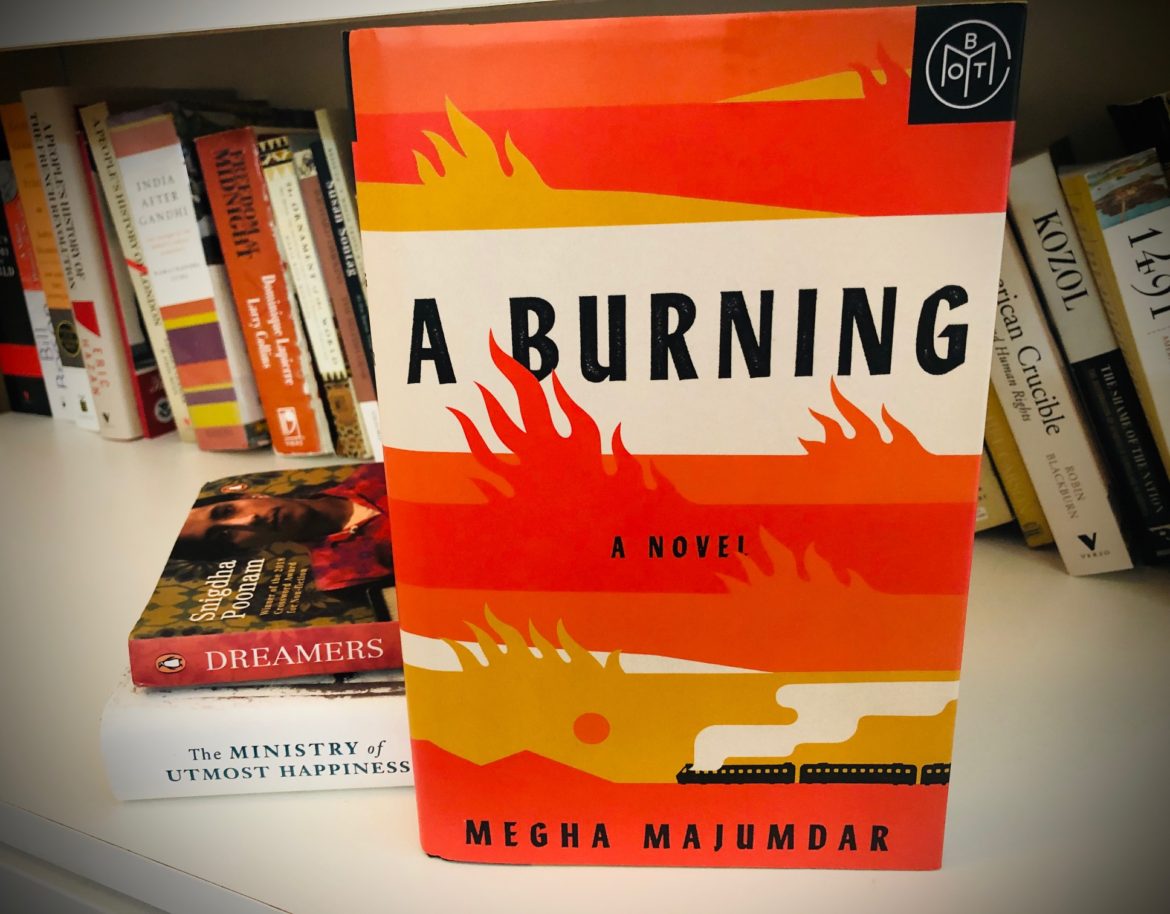Megha Majumdar’s debut novel A Burning is literally setting the world ablaze with its rave reviews. The praise is so universal that I hesitated a bit before opening its pages. What if it did not live up to the hype, or worse, what if it mishandled the geopolitics that dominate today’s India?
I need not have worried. Through the stories of Jivan, Lovely, and PT Sir, Majumdar weaves an intricate human drama that touches on a myriad of themes without being overtly political yet still damning.

Photo by @yashmodi7 on Unsplash.com
The novel starts with the burning of a train at the local station near the slums Jivan calls home. Over one hundred people are dead, and like the rest of the youth in India, Jivan is following the news on social media. While scrolling through the feed, and eager to be a part of the discussion, Jivan posts a slightly controversial comment.
“If the police didn’t help ordinary people like you and me, if the police watched them die, doesn’t that mean that the government is also a terrorist?” — Jivan
In a country where the appetite for dissent is ever decreasing, this comment lands her in jail for terrorism. And now starts her journey through the hell of the Indian judiciary that’s not meant to protect people like her: a poor Muslim girl of no importance. Her fate lies in the disinterested hands of a court-appointed lawyer, and the testimony of her friend and student, Lovely.
Lovely’s testimony can save Jivan, but she is a trans woman who, despite all her talent, makes her living begging for alms. When the time comes, will it matter what she says? And will it stand in the way of her dreams of becoming a star?
Nothing is simple for a person like me…My chest is a man’s chest, and my breasts are made of rags. So what? Find me another woman in this whole city as truly woman as me. — Lovely
I am almost tempted to call Lovely the beating heart of the story. Her chapters pulse with energy and passion and, as a reader, one is buoyed by her belief and love for herself. Lovely is an outcast trying to find her own place in the world which is ceaselessly cruel to her, and who are we to judge her choices?
Then there is PT Sir, a middle-aged school teacher searching for purpose and influence. He was Jivan’s self-appointed mentor and holds a grudge against Jivan for not sufficiently expressing gratitude for his help. When he learns of Jivan’s arrest, he feels vindicated.
Now he knows, there was something wrong with Jivan the whole time. There was something wrong in her thinking. — PT Sir
PT Sir’s ego finds the recognition it is looking for as he ties his fate to the local right-wing political party. As the novel progresses, PT Sir makes increasingly dubious choices to justify his ambition and his middle-class dreams.

Photo by @timesofwander on Unsplash.com
Through the stories of these characters, readers come to understand the despair of their lives and the value of their dreams. Majumdar lays bare the ironies of existence in contemporary India, where shiny malls and skyscrapers remain out of reach for the surrounding slum dwellers, where deep-seated prejudices still determine the lives of people. There is freedom to shop and spend, but there isn’t freedom to be.
Everyone has dreams, but whose dreams matter more? Why does Jivan’s misery become the stepping stone for Lovely and PT Sir’s success? Did the system fail Jivan or the people whom she trusted?
Majumdar has provided the three characters with distinct voices that speak English with varying fluency, highlighting the gaps in their social background and education. So not only do they have unique personalities, but they speak the same language differently, which adds layers of context. One can tear through A Burning in a single sitting of a few hours. The writing is sharp and the prose flies off the page, but there is so much unsaid between the lines that it will be awhile before you stop thinking about it.

Photo by @himanshu723 on Unsplash.com
As a person who grew up in India, and who has been less than enthusiastic about the nationalist wave coloring the nation, this book is also deeply personal. It’s not possible for me to read the lives of Jivan, Lovely, and PT Sir objectively. I have met these people, and I know these stories.
I know the fear that descends on minorities when a terror incident occurs, and the threat of retaliation that hovers over their lives. I have seen the discomfort on the faces of my relatives when the Lovelys of the neighborhood come dancing at our doors, wanting the blessings but still looking down at them as lesser beings. I know the cacophony of screeching noises on TV that count as journalism today. I know the false truths that the politicians pedal, and the fires of religion and nationalism they constantly stoke. I know how the IT cells of these politicians sow dissent and fear and capture the votes.
Nothing in A Burning is an exaggeration, from the burning of the train to the lynching of the alleged beef eaters. For a fictional novel, it feels very real. And therein lies its power in raising uncomfortable truths. This book deserves all the praise it gets.
Further Reading
If my review convinces you to try this out, I recommend pairing this with Snigdha Poonam’s Dreamers or giving Pataal Lok on Amazon Prime a watch.
For more of my favorite books, go here


